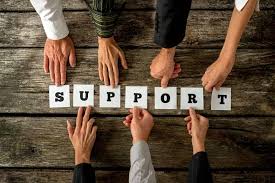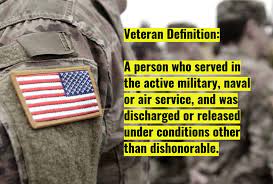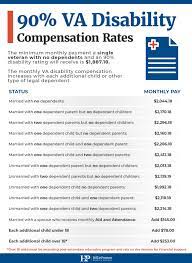Help for Veterans in Need
Many veterans face challenges when they return to civilian life. From physical injuries to mental health issues, the transition can be difficult. Fortunately, there are numerous resources available to help veterans in need.
One key resource for veterans is the Department of Veterans Affairs (VA). The VA offers a wide range of services, including healthcare, disability compensation, education and training benefits, and housing assistance. Veterans can contact their local VA office or visit the VA website to learn more about the benefits they may be eligible for.
Non-profit organizations also play a crucial role in supporting veterans. Organizations like the Wounded Warrior Project, Disabled American Veterans, and Team Rubicon provide a variety of services, such as mental health support, job training programs, and financial assistance.
In addition to formal organizations, many communities have programs specifically designed to help veterans. These programs may include job fairs tailored to veterans, support groups for those struggling with PTSD, and housing initiatives for homeless veterans.
It’s important for veterans in need to know that they are not alone. By reaching out for help and utilizing the resources available to them, veterans can receive the support they deserve as a token of gratitude for their service to our country.
Top 5 Benefits of Support Services for Veterans in Need
- Access to healthcare services through the Department of Veterans Affairs (VA)
- Support for mental health issues and PTSD from specialized organizations
- Job training programs to help veterans transition back into civilian life
- Financial assistance and housing initiatives for homeless veterans
- Dedicated community programs tailored to meet the specific needs of veterans
Challenges Facing Veterans in Accessing Needed Support Services
- Long wait times for appointments and services at VA facilities can be frustrating for veterans in need.
- Some veterans may face challenges in accessing or navigating the complex system of benefits and services available to them.
- Funding limitations may restrict the availability of certain programs and resources that could benefit veterans in need.
- Not all veterans may be aware of the full range of assistance programs that are available to them, leading to underutilization of support services.
- In some cases, bureaucratic red tape and paperwork requirements can create barriers for veterans seeking help.
Access to healthcare services through the Department of Veterans Affairs (VA)
Access to healthcare services through the Department of Veterans Affairs (VA) is a crucial benefit that provides veterans in need with specialized medical care tailored to their unique experiences and challenges. The VA offers a comprehensive range of healthcare services, including physical and mental health treatments, rehabilitation programs, and preventive care. By accessing these services, veterans can receive the specialized care they deserve to address any service-related injuries or illnesses, ensuring they can lead healthier and more fulfilling lives post-service.
Support for mental health issues and PTSD from specialized organizations
Specialized organizations providing support for mental health issues and PTSD offer a crucial lifeline for veterans in need. These organizations understand the unique challenges faced by veterans and provide tailored services to address their mental health concerns. By offering counseling, therapy, and support groups specifically designed for veterans, these organizations create a safe space for individuals to share their experiences and receive the help they need. The specialized care provided by these organizations plays a vital role in improving the well-being and quality of life for veterans struggling with mental health issues, ensuring they receive the support necessary to navigate their challenges effectively.
Job training programs to help veterans transition back into civilian life
Job training programs are a crucial resource that helps veterans transition back into civilian life with ease. These programs provide veterans with the necessary skills and knowledge to secure employment opportunities in various industries. By offering specialized training tailored to veterans’ unique experiences and backgrounds, these programs empower veterans to successfully reintegrate into the workforce and build fulfilling careers post-military service. Through job training initiatives, veterans can gain confidence, stability, and a sense of purpose as they navigate the challenges of transitioning back to civilian life.
Financial assistance and housing initiatives for homeless veterans
Financial assistance and housing initiatives for homeless veterans are crucial benefits that provide much-needed support to those who have served our country. By offering financial aid and access to stable housing, these initiatives help homeless veterans regain stability and rebuild their lives. Providing a safe and secure place to live, coupled with financial assistance, not only addresses the immediate needs of homeless veterans but also empowers them to work towards a brighter future. These programs demonstrate a commitment to ensuring that no veteran is left behind, showing gratitude for their service by offering tangible support when they need it most.
Dedicated community programs tailored to meet the specific needs of veterans
Dedicated community programs tailored to meet the specific needs of veterans play a crucial role in providing targeted support and assistance to those who have served our country. These programs offer specialized services such as job training, mental health support, housing assistance, and other resources uniquely designed to address the challenges faced by veterans. By catering to the specific needs of veterans, these community programs ensure that individuals receive personalized care and guidance, ultimately helping them successfully navigate their transition back to civilian life.
Long wait times for appointments and services at VA facilities can be frustrating for veterans in need.
Long wait times for appointments and services at VA facilities can be incredibly frustrating for veterans in need. Delays in receiving necessary care can exacerbate existing health conditions and add unnecessary stress to an already challenging situation. For veterans seeking urgent medical attention or support, extended wait times can hinder their ability to access timely and critical services. Addressing this issue is crucial to ensuring that veterans receive the prompt and efficient care they deserve as a token of appreciation for their service to our country.
Some veterans may face challenges in accessing or navigating the complex system of benefits and services available to them.
Some veterans may encounter difficulties in accessing or navigating the intricate system of benefits and services designed to assist them. The complexity of the process can be overwhelming and frustrating for those in need of support. Without proper guidance and assistance, veterans may struggle to understand their eligibility for certain benefits or how to effectively apply for them. This barrier can hinder veterans from receiving the help they rightfully deserve, emphasizing the importance of providing accessible and clear pathways for veterans to access the assistance they need.
Funding limitations may restrict the availability of certain programs and resources that could benefit veterans in need.
Funding limitations pose a significant con in providing help for veterans in need, as they can restrict the availability of essential programs and resources that could greatly benefit those who have served our country. These restrictions may result in a lack of access to critical services such as mental health support, job training programs, housing assistance, and medical care. Without adequate funding, the ability to reach and assist all veterans in need may be compromised, highlighting the ongoing challenge of ensuring that our veterans receive the comprehensive support they require for a successful transition back to civilian life.
Not all veterans may be aware of the full range of assistance programs that are available to them, leading to underutilization of support services.
One significant drawback in providing help for veterans in need is that not all veterans may be aware of the full range of assistance programs available to them. This lack of awareness can result in the underutilization of support services that are designed to help veterans navigate challenges they may face. Without proper knowledge of available resources, some veterans may struggle to access essential benefits and services that could greatly improve their quality of life. It is crucial to address this issue by increasing awareness and outreach efforts to ensure that every veteran in need is aware of and able to utilize the support services available to them.
In some cases, bureaucratic red tape and paperwork requirements can create barriers for veterans seeking help.
In some cases, bureaucratic red tape and paperwork requirements can create significant barriers for veterans seeking help. The complex processes and extensive documentation needed to access certain benefits or services can be overwhelming for veterans already dealing with challenges. Navigating through the bureaucracy can lead to delays in receiving assistance, causing frustration and discouragement among those in need. Streamlining administrative procedures and providing more efficient support systems could greatly alleviate this conundrum and ensure that veterans receive the timely help they deserve.




